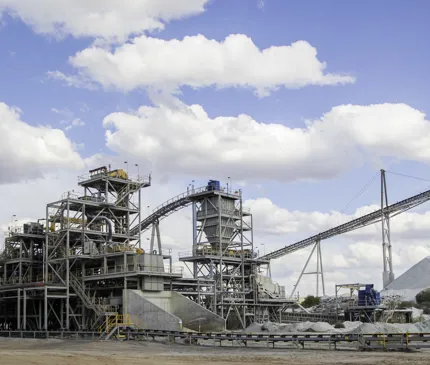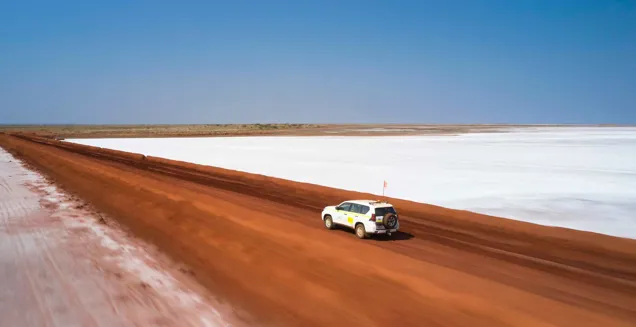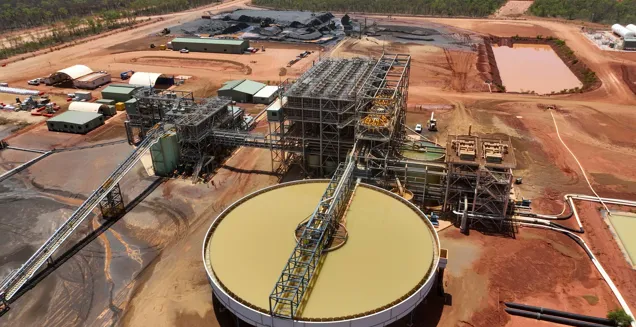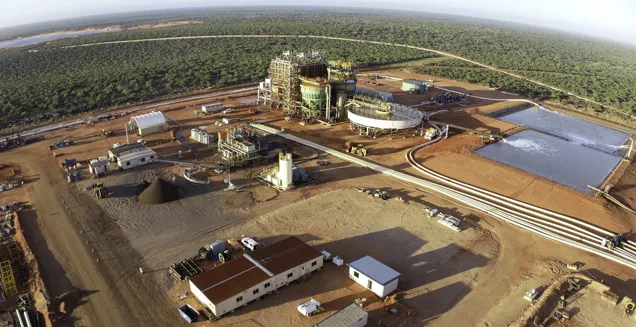P680 Expansion
The Pilbara Minerals Limited P680 expansion project is a lithium resources mine supported by a $125 million loan from the Northern Australia Infrastructure Facility (NAIF).
September 2022
Resources
Pilbara region, Western Australia

The Pilbara Minerals P680 Expansion Project received up to $125 million in debt finance from the Northern Australia Infrastructure Facility (NAIF) in September 2022 to support the growth of lithium production in the Pilbara region of Western Australia.
The investment enabled new processing facilities and increased spodumene concentrate capacity, strengthening Australia’s role as a global supplier of critical minerals for clean energy technologies. The project created hundreds of jobs during construction and operations, delivered an estimated $1.4 billion in public benefit, and by June 2025, the loan was fully repaid.
About Pilbara Minerals
Pilbara Minerals (now called PLS) is an ASX50 listed company, owning 100% of the world’s largest, independent hard-rock lithium operation. The company was founded in January 2005 as Portland International. It operates the Pilgangoora Project, located 120 km from Port Hedland, Western Australia, which includes two processing plants: the Pilgan Plant and the Ngungaju Plant. From this project, the company produces predominantly lithium and tantalum.
The company is located in Western Australia’s resource-rich Pilbara region, where their Pilgangoora Operation produces spodumene and tantalite concentrates. While their operation continues to deliver a quality product to market, they are pursuing a growth and diversification strategy to become a sustainable battery materials supplier. Their business is being fuelled by the increasing demand for clean energy technologies, such as electric vehicles and energy storage, as the world pursues its net zero ambition.
Project Overview
Pilbara Minerals received up to $125 million in NAIF debt finance to support the expansion of its Pilgangoora operation in the Pilbara region of Western Australia. The loan facilitated the construction of the P680 Project expansion at the Pilgan Plant, which delivered an additional 100,000 tonnes per annum of spodumene concentrate production. It also supported the development of a new 5 Mtpa crushing and ore sorting facility, replacing the existing contracted crushing facility and enabling future growth of up to 1 Mtpa of spodumene concentrate production across the entire Pilgangoora operation.
The NAIF loan was provided alongside a loan from Export Finance Australia for the US$ equivalent of $125m, bringing the level of support from the Australian Government to$250m. Both loans were co-financed alongside commercial lenders for the Pilbara Minerals project.
This support has helped to increase Australia’s production capacity of spodumene concentrate, a key raw material for lithium-ion batteries, and an important element in Australia’s offering as a globally trusted supplier of critical minerals required for the world’s clean energy transition.
How We Helped
NAIF supported the P680 Expansion Project with a long-tenor loan of up to $125 million.
Our support de-risked the project by providing finance structured to match the long-life nature of critical minerals infrastructure. It encouraged further investment by bridging a market funding gap and enabling production growth. The project also strengthened strategic industries by aligning with the Commonwealth’s Critical Minerals Strategy and advancing the global battery supply chain.
Through this support, Pilbara Minerals expanded spodumene concentrate production and reinforced Australia’s position as a reliable supplier of lithium for electric vehicles, energy storage and emerging clean technologies.
Public Benefit
Independent analysis by Deloitte Access Economics estimated a $1.4 billion boost to Gross Regional Product over the 18-year life of the mine, representing an 11:1 public benefit ratio relative to the NAIF loan amount.
The project is estimated to create 355 jobs annually in the first two years of construction and an additional 320 jobs each year during the operational life of the mine. Beyond economic impact, the project contributes to Australia’s energy transition by increasing supply of critical minerals used in clean technologies.
It supports Indigenous engagement through procurement commitments with local Aboriginal businesses and ongoing collaboration with the Nyamal and Kariyarra Aboriginal Corporations. Infrastructure upgrades and community development in the region are also expected as indirect benefits of the project’s implementation.
Related Links
Indigenous Engagement
- The Nyamal people
The P680 Expansion Project is located on Nyamal Country (Yurlu), in the Pilbara region of Western Australia. According to Nyamal lore, ancestral beings known as manguny created the land during the kapukarri (dreamtime), placing the Nyamal people, their language, and laws upon it. These laws continue to guide the ngayarta (people) today. Nyamal Country encompasses most of the De Grey River Catchment, excluding its headwaters wuluyu (south) in Palyku and Nyiyaparli Country, and extends approximately 65 kilometres wartalpa (north) to the sea in Ngarla Country. Major tributaries across Nyamal Country include the Oakover, Nullagine, Coongan, Strelley, Shaw, and Turner Rivers. The eastern boundary of Nyamal Country is marked by Jingkarn (the Gregory Range), beyond which lie the sand dunes of the Great Sandy Desert. The landscape features spinifex-covered sandplains, rocky hills, gorges, granite outcrops, and rich riverine ecosystems lined with paperbark, river red gums, and snappy gums. These major river systems nourish the land and sustain its biodiversity. Today, the Nyamal people maintain a strong connection to their language, law, and country. The Nyamal Aboriginal Corporation (NAC) plays a central role in representing the interests of Nyamal Traditional Owners managing Native Title responsibilities, protecting cultural heritage, and creating pathways for employment, training, and business opportunities that benefit both current and future generations.
Indigenous Engagement Strategy Commitments
- Pilbara Minerals is committed to ongoing consultation with the NAC and other key prescribed bodies corporate and engage in cross cultural awareness activities and participating in ongoing Implementation Committee meetings.
- PLS is committed to employ Aboriginal Liaison Officers at its Pilgangoora Operations, with positions filled by First Nations people supported by the Nyamal community, and notifies the Nyamal Aboriginal Corporation (NAC) of employment opportunities to support Indigenous participation.
- Preference will be given to competitive tenders from First Nations contractors, with early notice provided to NAC about upcoming contracts and work packages linked to the project’s construction and operation.
- Major contractors are required to report on First Nations employment and procurement outcomes, including spend with First Nations suppliers, hours worked by First Nations employees, and job types, in alignment with the Nyamal Native Title Agreement and Cultural Heritage Management Plan.
Indigenous Engagement Strategy Outcomes
- In early 2023, Pilbara Minerals appointed a Nyamal Traditional Owner as a full-time Aboriginal Liaison Officer at the Pilgangoora Project, alongside another Traditional Owner in a full-time role on site, and an Indigenous Liaison Coordinator at the corporate level. The proponent awarded nine contracts to Indigenous businesses.
- In late 2023, First Nations employment reached 2.6%. Pilbara Minerals launched its inaugural Reconciliation Action Plan and delivered several cross-cultural awareness workshops in partnership with the NAC.
- In early 2024, First Nations employment was recorded at 2.1%, with 26 full-time First Nations employees working across the project. Pilbara Minerals continued its engagement with the Nyamal Aboriginal Corporation and expanded its cultural training initiatives.
- As of 30 June 2025, Pilbara Minerals fully repaid their loan and as such there are no further reporting obligations to NAIF under their Indigenous Engagement Strategy (IES). The project will continue to generate jobs and long-term economic benefits for the region.


